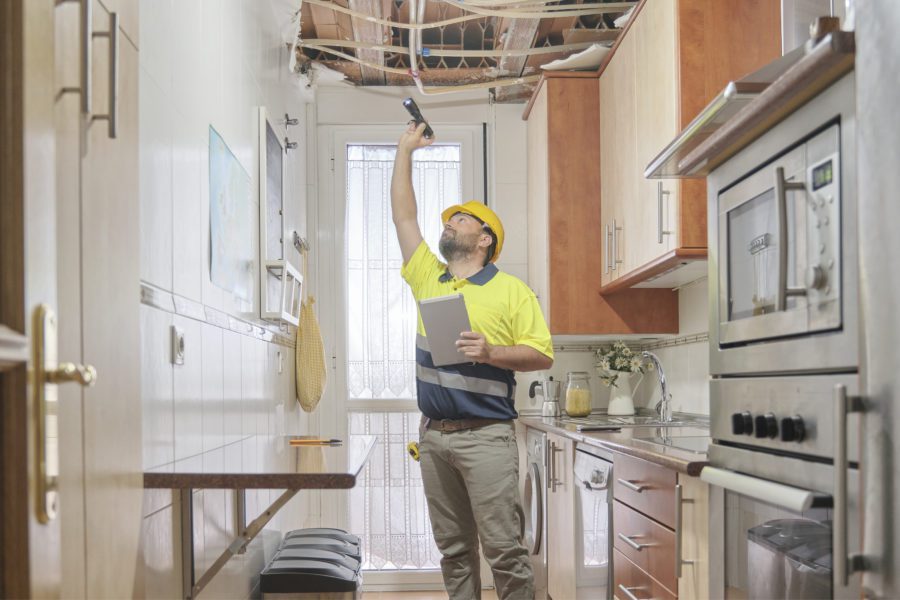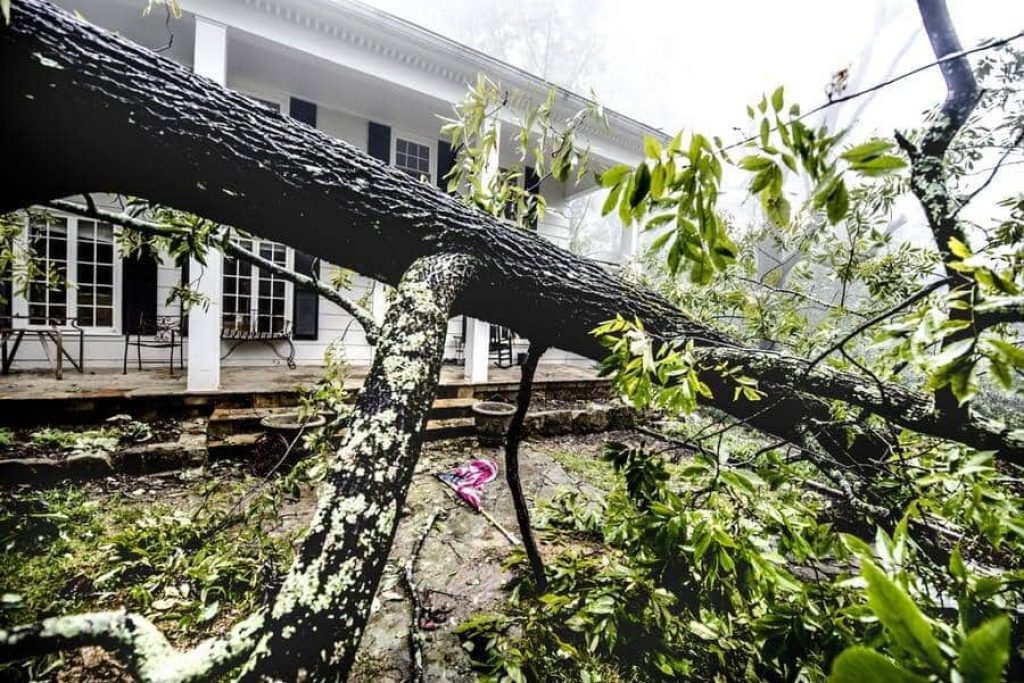After natural disasters, many people are left trying to put the pieces of their life back together. Unfortunately, some unscrupulous individuals take advantage of this situation to scam disaster victims. To prevent these scammers taking advantage of you at a particularly vulnerable time, learn how to avoid fraud after a natural disaster.
How Fraud Can Follow Disasters
Natural disasters leave many people desperate for assistance. Their homes and businesses may be severely damaged, possibly to the point of being uninhabitable. They may not have the food, water and other supplies they need. Communication may be difficult, and services may be overwhelmed. All this creates a situation that scammers and other deceitful individuals can take advantage of.
According to the Federal Communications Commission (FCC), scammers often go door-to-door to target residents after a hurricane or other type of severe storm. They may also contact targets by phone, text, mail or email, often using spoofing techniques to make it appear as though they are associated with official agencies.
FEMA says fraud has become a serious problem after nearly every disaster. Common scams include phony housing inspectors, fraudulent contractors and fake offers of government aid.
Fake charity scams are another threat. After a natural disaster, many people need help – and many others are eager to provide that help. Scammers take advantage of this by collecting donations they say will go to help natural disaster victims. In reality, the funds are never given to people in need.
Some scammers may try to take your money, but others will try to steal your information. Since identity theft is a common post-disaster problem, guard both your money and your personal information carefully.
Federal Emergency Management Agency (FEMA) Disaster Assistance
If you’ve been impacted by a major disaster, FEMA may provide assistance. Individuals and families can apply for assistance at https://www.disasterassistance.gov. You do not need to pay a fee to apply for disaster assistance from FEMA, so anyone trying to charge for this service is scamming you.
Scammers may also take advantage of FEMA programs in other ways. For example, FEMA warns that a fraudulent FEMA application could be a sign you’ve been a victim of identity theft. FEMA encourages people to report disaster fraud and suspicious activity, such as if a FEMA inspector comes to your house, but you have not applied for FEMA assistance.
The Federal Trade Commission Warning About Unlicensed Contractors
The Federal Trade Commission (FTC) warns that unlicensed contractors and scammers often promise quick repairs and clean-up services after a natural disaster.
This can be tempting to people who want to put the disaster behind them as fast as possible, especially when other service providers are busy and unable to provide immediate assistance. But watch out: these unlicensed contractors and scammers may take your money without doing the work they promised. Alternatively, they may lack the skills and experience needed to do an adequate job. You’re much better off waiting until you can confirm that you’re working with a licensed and qualified contractor.
Scammers Who Want You to Falsify Claims
Some scammers will try to convince you to join them in their schemes. Don’t do it.
According to the National Insurance Crime Bureau (NICB), corrupt contractors sometimes offer to manipulate prices to cover your deductible or to cover work that the disaster didn’t actually cause. This is insurance fraud.
Insurance fraud is a felony, meaning that you could face criminal charges if you are caught participating. Additionally, your insurance coverage may be voided if the insurer discovers you have made any misrepresentations. As a result, you could end up with major costs and no insurance coverage.
A dishonest contractor may try to convince you that it’s no big deal, but this is untrue. They’re not looking out for you – they’re trying to pad their own pockets.
Notify Your Insurance Company
After a disaster, your insurance company is a crucial resource. If you’ve experienced property damage, contact your insurance company as soon as possible. You should do this before entering into agreements with contractors.
Your insurer can start your claim as quickly as possible and help you find a trustworthy contractor. Although our customers can choose to work with any contractor they like, we provide a list of licensed, insured and qualified contractors to help customers avoid unlicensed and fraudulent contractors.
Tips to Avoid Scams
Falling victim to a scam after a natural disaster can make a bad situation even worse. Take steps to avoid scams.
- Watch out for scammers claiming to be government officials, someone from your insurance company, or a contractor working for your insurance company. As scammers often use phone spoofing techniques, it may look like they’re calling from an official number. Don’t give out any information. Instead, hang up and call the government agency or your insurance company yourself.
- Work with your insurer. Report your claim to your insurance company as soon as possible to enable your insurer to provide you with support and guidance throughout the recovery process.
- Work only with licensed and insured contractors. Ask for the contractor’s license number; then verify the contractor’s status with your state’s licensing board. You should also ask for references, check the Better Business Bureau and read online reviews.
- Receive more than one estimate before settling on a contractor. Don’t just choose the first contractor who calls you or knocks on your door.
- Ask for a written agreement that include costs, work to be completed, time schedule, guarantees, payment schedule and other expectations. Read the contract carefully and make sure there are no blank spaces. Never sign a contract with blank fields, as disreputable contractors may take advantage of these to fill in information that does not reflect your verbal agreement.
- When paying a contractor, use a check or credit card, not cash. You may need to make a down payment of up to 30 percent, but do not pay the full amount upfront.
- Don’t sign a completion certificate until the contractor has actually completed the work.
- Before making a charitable donation, make sure it will go to people who need help and not fake charities. Several organizations, including the Better Business Bureau and GuideStar, provide information to help you vet charities. When in doubt, donate to a charity you’re familiar with and trust.
- Report fraud and scams. By reporting suspicious activity, you may help other people avoid scams. To report FEMA fraud, email FEMA Fraud Investigators at [email protected]. To report unlicensed or fraudulent claims adjusters or scammers who encourage you to falsify claims, contact your insurance agent or the National Insurance Crime Bureau at 1-800-835-6422. You can report other types of fraud to the FTC at https://reportfraud.ftc.gov/.
Higginbotham provides more than insurance. We also provide catastrophe support, claims management and coverage advocacy. Learn more.






